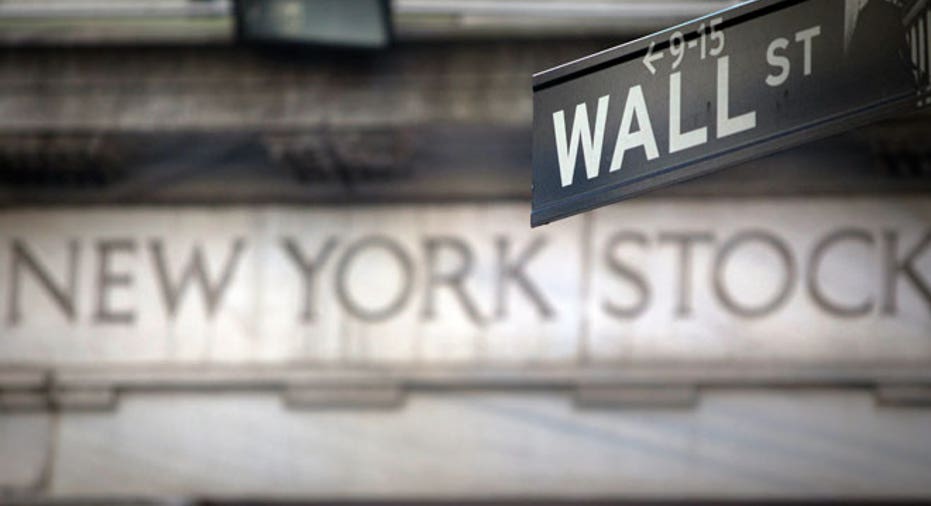What to Do with the Market's Volatility

After market action of the first two weeks of the year, investors want to know: Is the most despised bull run in history over?
They ask: Is January 2016 simply a sneak preview to a headline feature of a grisly year - or decade to come? Have the past six years been a false panacea – a luscious intoxication of victory hastily decreed by desperate kings and kingdom bankers? Is this the lamentable morning after – where even the most cleverly considered minefields and quicksand cannot long conceal the dark truth? Are we at the early stages of a great recompense – a boundless economic disorder of which has defined eras of old while leaving deep scars for future generations to restore?
The market’s storm clouds have gathered with astonishing facility that in a peculiar way make them admonitory rather than strictly objects of fearsome curiosity. The daily headlines, the volatility, and the steep drawdowns – their effect is absorbing and unsettling. It appeals to our distress, pleasures in it, and seems willfully unconcerned about those who bear the burden being anxious or dispossessed. Yet there’s a secret tenderness at work, too. There’s a visceral attraction to things that petrify us; it can act as a cohesive blend of forewarning, helping us to discern between the aesthetic and macabre.
What to Do?
Ancient near east antiquity tells us of a serpent in the garden. Our minds obsess with temptation and the apple while our focus should be targeted towards the pear on the ground! Maybe this isn’t what some people want to hear, but I think it’s rightly thinking. We are obsessed with outcomes rather than the process which led to them. We as investors are vastly more than a mere plurality of options, but a tangled mesh of amalgamating outlooks, ideas, objectives, and perspectives – through which all boots must step.
What to do? To my mind, the ideal is to maximize this market drawdown for good purpose; as the fee for personal inventory management. Our financial culture has over-educated and over-stimulated itself into imbecility. It’s now an unspoiled opportunity to defend ones self by traveling to the desert places and till the untouched soil of financial-market sensibility.
The Financial-Market Sideshow
Long gone is America’s circus sideshow culture, and gone with it a generation of sword swallowers and strongmen who gave carnies a peek of huckstered mystery in carnival tents and halls. Eventually deemed distasteful in a progressive, polite society – yet, the demand for the anomaly, the shock, or cheap thrill was ever-present in our culture and simply pulled its stakes from one sideshow fairgrounds to another.
Today’s stage is within financial media. They often portray themselves with self-importance and reverence driven by a costumed imagination of carefully crafted foreknowledge and narcissism. They can regularly peel away phenomenon as fact, shock you with innate predictive powers, and tease you with the next hot market. The public clamors for the sense of theater and mystery – paying for the privilege of being let into this wonderful secret - of someone who knows not only what’s around the corner but knows precisely where the corner is! And similar to sideshow culture of old, there was an air of scam and secret yet that was part of the thrill – both yesterday and today.
Smartest Guy in the Room
I do not write and appear regularly on financial television because it helps market me or my fund. I do it solely because I love it and hope to make a career of it. Managing other people’s money is a very humbling experience and one I hold in highest regard. Yet, managing other people’s “perspective” on money is a calling higher still and one that I fully am prepared for. I’ve learned it’s not what we say but how we make others feel. Below is a brief list of thoughts and iterations on the markets and your investments.
Embrace your predictive limitations by accepting that markets can and do move in two directions. Accept the reality that “rare events” are actually quite common and preparing for them – through real portfolio diversification - will serve you far better than trying to predict them.
Hold lightly anyone uttering the words: “earnings estimate,” “price target,” “forecast,” or “implied price.” All of which are highly suspect and generally indicative of someone who believes the future is somehow knowable. These phrases are utter banality and should be rendered meaningless.
Beware of trading conferences and classes designed to supplement your income. The historical evidence is clearly against you and so are the time commitment, patience, and risk-capital requirements. Think very hard and honestly on this and the reality of your competition. They are likely better than you – much better.
Markets do not follow a calendar, nor should they be followed by one. A well-diversified investment portfolio should not be touched - only rebalanced due to market movement. Additionally the risk metrics and risk attribution of a portfolio should be viewed holistically during an “investable period” time-frame.
Investor uncertainty – if left unchecked – will cause emotional discomfort and ultimately poor decision making. Hire a solid financial advisor who understands the only constant is change; that forecasting the market is not important compared to understanding market value.
Turn down the TV volume when someone knows what goes on in the mind of a central bank bureaucrat and positively knows what their action will do to market prices. This “freak of nature” has been able to deceive himself – think how much easier it will be to deceive you.



















